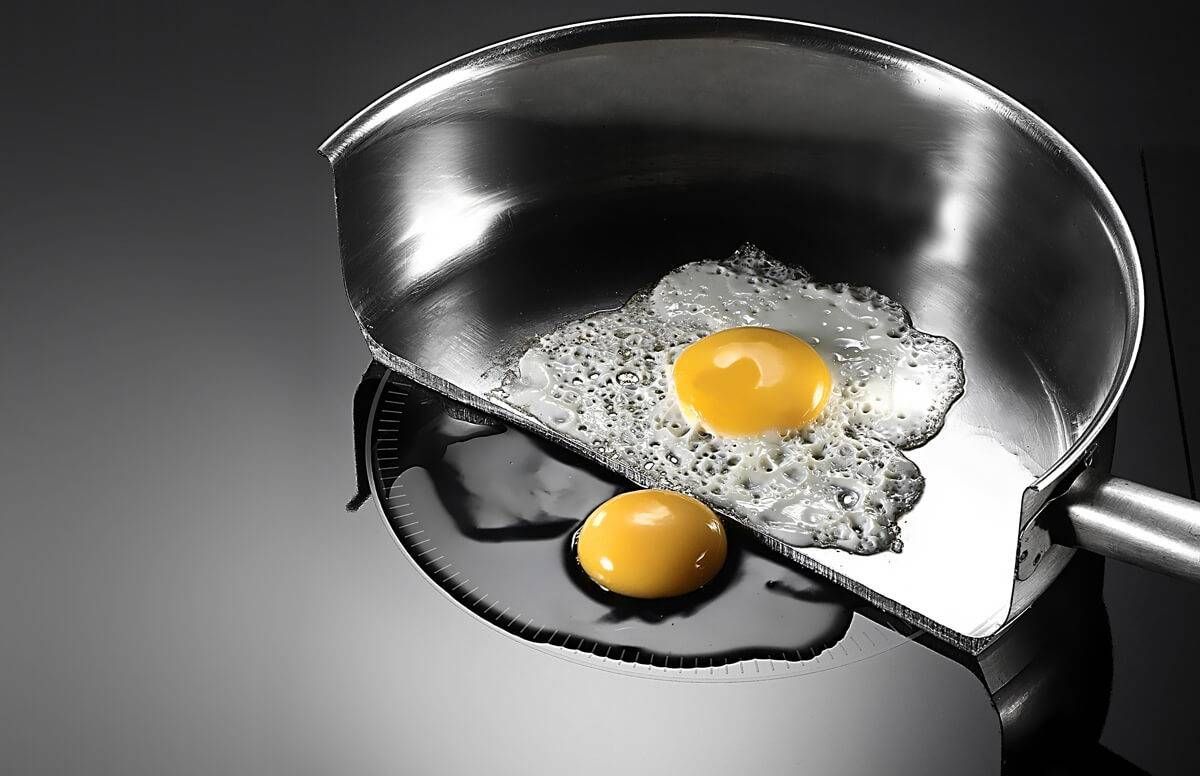Induction Cooking Is Eco-Friendly
'This Old House' host Kevin O'Connor says the cooktops are getting more affordable
(Editor's Note: This story originally ran on Rewire).

If you’re a kitchen nerd, maybe you’ve heard of them: fossil fuel-free, space-age stovetops that cook your food fast but can’t burn you. Maybe you’ve seen a video of someone putting their bare hand against the switched-on heating element and coming away unscathed.
These are induction cooktops — electric stoves that employ magnetic technology to heat only pans made specifically for induction cooking.
This kind of technology is relatively new on the consumer market. This season on PBS' This Old House, host Kevin O’Connor works with a couple to convert their old house to a net zero home. “Net zero” means the house creates as much energy as it uses. The couple chooses an induction cooktop for their updated kitchen.
“At the base of it you’re using electricity to (run the induction cooktop), so you’re not using any fossil fuel,” O’Connor said.
On top of being Earth-friendly and less likely to burn you, these stovetops can shave significant minutes off your cooking time. Their electromagnetic heating elements deliver more energy directly into your food than either gas or electric stoves, which spend a lot more energy heating up your pots and pans. On This Old House, chef Will Gilson is able to boil a huge pot of water in three minutes.
On the Cooking Edge
But even though energy efficiency is so hot right now, people aren’t yet clamoring for induction cooktops, O’Connor said. That’s because not a lot of people know about them or think of them as an option.
“It’s on the lower awareness of market awareness and market adoption,” he said. “If you were to walk into a high-end kitchen showroom or work with a designer, they’re going to present it as a very viable option. It’s not necessarily going to be on the floor of your big-box store.”
Homeowner Friendly
“High-end” doesn’t exactly sound accessible or affordable, but O’Connor said these cooktops, though flying a little under the radar, are getting more affordable. If you’re thinking of updating your kitchen, “they’re cost-comparative” to gas and electric ranges, he said.
“With prices starting at about $1,000, induction cooktops are moving from cult to mass-market status,” Deborah Baldwin wrote for This Old House Magazine.
Already popular in other parts of the world, induction cooking is an up-and-comer in U.S. households. The National Kitchen + Bath Association identified it as the fastest growing kitchen trend in its 2018 Design Trends survey. More popularity and availability could mean more affordability for homeowners.
“Still, they take getting used to. For one, you’ll probably need new cookware,” Baldwin wrote.
Because your regular old pots and pans won’t work with the electromagnetic heating element, you’ll have to get a whole new set. Of course, that’s an investment in itself.
To test whether a pan is able to be used on an induction cooktop, put a magnet on the bottom. If it sticks, it’s induction-friendly. One perk is you can use these pots and pans on other types of burners, too.
A Note to Traditionalists
One of the biggest critiques of induction cooking by people who love cooking is that there are no visual cues like there are with a gas stove. You can’t simply look at the heating element to see how hot it’s running.
“Many chefs prefer to use a cooking method they already know inside and out instead of switching to one they’ve never used before,” Alison Prelusky wrote for the A.J. Richard Learning Center, a blog of consumer information about home products. “When pitting induction cooktop vs. gas cooktop, gas certainly wins in the familiarity department.”
Based on your preferences, there might not be a clear front-runner for your kitchen rehab project. But if you’re into making your home as energy efficient and Earth-friendly as possible, it’s great to know induction cooktops are available at accessible price points.

